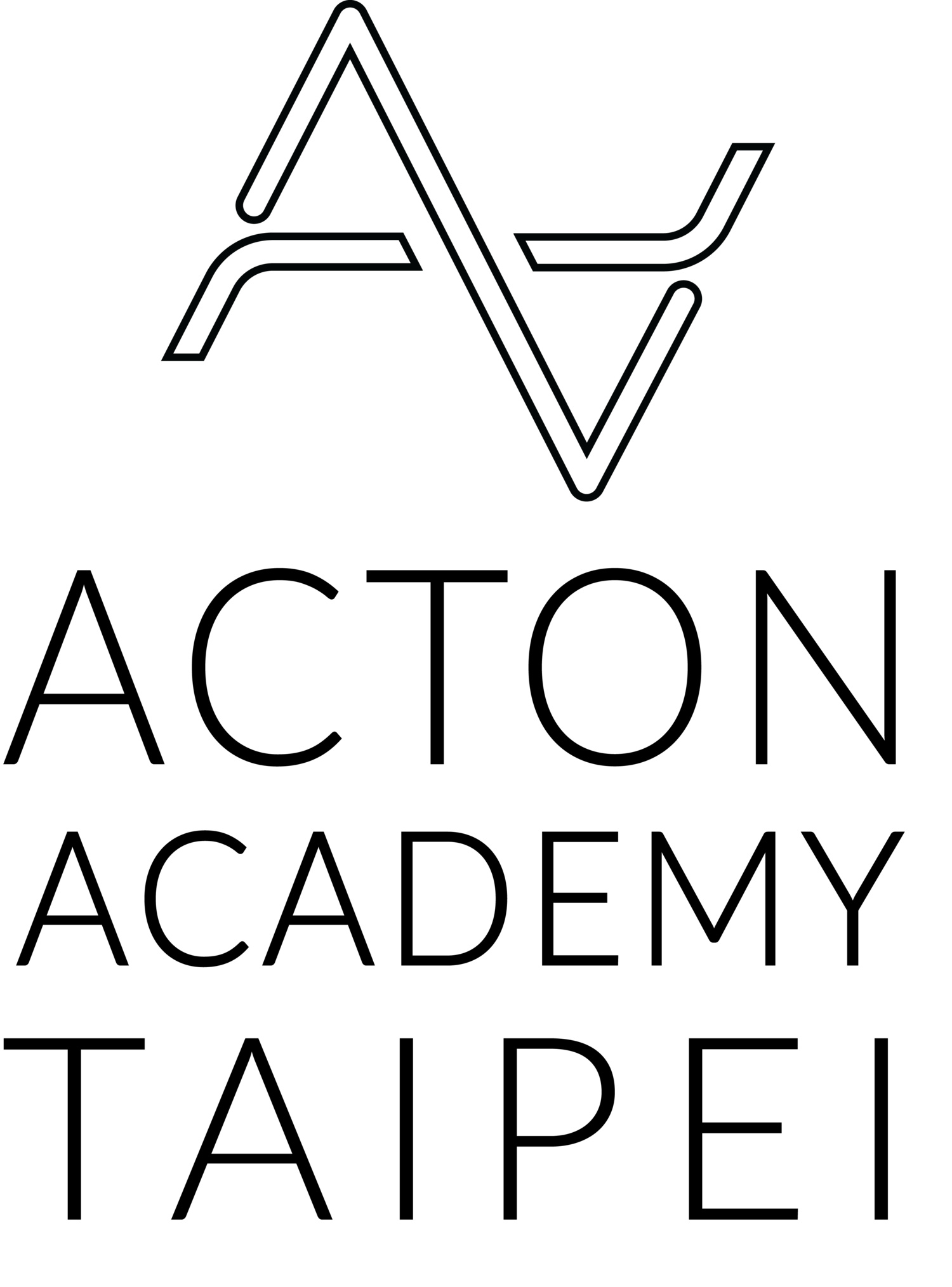Curious about what types of alternative education currently exist in the world? And, wondering how Acton Academy Taipei fits into the mix?
Here’s a quick breakdown, based on Peterson’s blog post, on what kinds of education you can pursue if traditional schooling doesn’t fit you, your child’s temperament, or your family’s philosophies.
Homeschooling
This is likely the most long-standing type of alternative education, in which a child is educated primarily by their parent at home.
Many homeschoolers follow a set curriculum and others piecemeal their studies, pulling from different resources. Homeschooling allows the family to learn together and work on projects as a team, allowing the student to feel supported and assume a leadership role in a safe environment.
It is an incorrect and unfortunate stereotype that homeschoolers never leave home and are woefully un-socialized. Most homeschool families take part in classes, clubs, groups, co-ops and the like to give the homeschooled student a well-rounded education. Many states even have homeschool sports teams and gym classes.
Online Schooling
If you’d like to learn more about online schooling, you can dive deeper by visiting this site here. According to Peterson’s, here’s what they say about online schooling:
Accessibility to technology and the internet has allowed for a rise in children being educated at home through an online school program. Online programs are taught by experienced teachers who follow a curriculum. They teach lessons, interact with their students, give tests and quizzes and keep records of the students’ grades. The services that online schools provide is extremely helpful when it comes to taking some of the pressure off of the homeschool parents’ shoulders.
Unschooling
We’ve been in touch with parents who have children with ADHD and find that unschooling, especially being in nature, has been an incredibly helpful way to encourage their children’s best development.
When a parent wishes to erase the influences of the public school system, time spent unschooling may be the ideal option. Unschooling does not involve any set curriculum or standards. It allows students to freely follow their interests without the constraints of assignments, grades and schedules.
World Schooling
Many expat families or digital nomads believe in world schooling, in which you raise your children in a third culture, different from ones that either parent grew up in. These can be immersion programs or longer stays, and in some countries, the international schools are quite long-standing and prestigious.
World Schooling is something we’re ideally looking to launch in 2019 with Mandarin-language immersion programs for students from around the world to participate in!
This is a great website for you to dive deeper into the best schools in countries around the world.
Private Education
Traditionally, private education was most commonly found at religious academies.
While far less common, there are some secular private schools scattered throughout the country. Sometimes going under the names of Democratic schools, Waldorf Schools or Montessori Schools, they all offer a unique approach to non-public education. With an emphasis placed on nature studies, independence and creativity, secular private schools attract many non-traditional students and families.
Military School
Military school used to be the thing of threats made by parents to misbehaving youth. Now, it is a viable education option for students looking for high-quality academics and post-graduation opportunities.
Military schools have a low dropout rate compared to that of public schools. They also boast excellent sports teams and the chance to learn independence and respect. Many military schools are boarding schools where the students live on the school’s campus, but others may offer schooling services to local students without requiring that they live on campus.
So… where does Acton Academy Taipei fit?
We’d like to say that we’re a non-traditional educational opportunity that’s a great balance of private education, world schooling, homeschooling, and even a bit of unschooling!
With so many quality options available, including forest schools that truly emphasize nature, We Grow (via We Work’s collaborative co-working space) that emphasizes conscious education rooted in entrepreneurialism, and even tiny schools, what elements of schooling do love for your children? What would you like to be even more disruptive?
“體制外” 的實驗教育、另類教育 (alternative education)的選擇
除了”體制內”的傳統教育之外,你知道全球目前有哪些 “體制外” 的實驗教育、另類教育的選擇?想知道台北愛騰教育 (Acton Academy Taipei)如何在這麼多元的選擇當中,佔有一席之地?
當傳統體制學校不適合你或者孩子的特質,又或是與你的家庭觀念有出入時,我們利用Peterson's 美加留學資訊網的提出的一個快速分類方式,為您介紹國際間多元的另類教育選擇?
在家教育/在家自學(Homeschooling)
另類教育中歷史最悠久的,大概就是由家長在家教育子女的在家自學。
許多在家自學的家庭根據一套課綱,也有些家庭擷取各種不同的學習資源後自承一套課程。在家自學,讓家庭成員可以一起共同學習,以團隊的方式協作;在這樣安全的環境下,讓孩子感受到支持,並承擔領導的責任。
「在家自學的孩子從未離開家庭、缺乏社會化」,這是一個普遍錯誤的既定印象。事實上,許多在家教育的家庭參與各種課程、活動、組織、社區合作團體,讓孩子得到健全的教育。有些地區甚至還有在家教育團體的體育隊伍和運動社團。
線上/遠距教育(Online schooling)
關於網絡教育,Peterson認為:
"科技與網路的便利,讓孩子在家也能透過網路課程進行學習。網路課程通常由資深的講師,根據一套課程來授課。他們不僅教授課程,也與學生互動,並透過測驗和考試來記錄學生的表現。網路教育尤其能減輕在家教育家長的負擔和壓力。" 如果對網路教育想要有更深入的瞭解,可以參考均一教育平台,中華開放教育平台openedu,育網ewant開放教育平台,英文部分,我們建議可以看看Accredited Schools Online這個網站。
非學校化教育(Unschooling)
我們接觸ADHD(注意力不足過動症)孩子的家長時發現,非學校化教育的方式,特別是在大自然的環境中,對協助與促進孩子的個人發展有相當大的幫助。
當一個家長希望能減少公立學校系統的影響,花點時間進行“非學校化教育”或許是個不錯的選擇。非學校化教育不採用任何一套課綱,容許孩子自由地依照個人的興趣,同時沒有任何功課、分數和時間表的限制。
世界教育/國際教育(World schooling)
許多移民家庭或數位遊牧 (digital nomad) 相信世界即教育,讓孩子在非雙親的原生文化的 “第三文化” 環境中成長。這些可以是沉浸式教學或在某些地區長期居留,尤其是在一些擁有歷史悠久、好口碑的國際學校的國家。
我們期望在2019年啟動這樣的世界教育,讓來自世界各國的學生參與的沉浸式中文課程。
你也可以透過這個World School 這個網站來瞭解世界各國最好的國際學校。
私立實驗學校
在美國,傳統上,多數私立學校是由宗教團體或財團法人成立的;有少數的私立實驗學校會在美國國內各地有分校,但這情形相對少見。
這類學校有時是被稱為民主學校 (Democratic schools)、華德福學校或蒙特梭利學校。這些非公立學校提供一些特定的取向。透過重視大自然教育、獨立學習和創意思考,私立實驗學校吸引許多非傳統的家庭和學生。
美國這類私立學校與台灣體制內的“實驗小學”或是“實驗中學”不太一樣,上述狀況乃以美國境內的校制為例。
軍校
在美國的教育體系中,軍校,過去是被家長用來恐嚇或送管行為不良的青少年。如今,它已成為學生在物色高素質教育、畢業後就業機會的一個選項。
比起一般公立學校,軍校的輟學率相對較低。他們也強調其優異的各類運動隊伍,以及學習獨立與尊重的機會。許多軍校都是住宿型學校,學生都住在學校宿舍內,另有一些則提供在地學生就讀、不要求住校。
上述軍校狀況以美國國內為主,看台灣的狀況不完全一樣。目前台灣僅有中正預校招收高中以下的學生,每年招收不超過200位新生。
所以,台北愛騰屬於哪一類?
我們是一種非傳統體制內的實驗教育/ 另類教育,可以說是綜合了上述私立實驗學校、世界教育、在家教育、甚至也包含了非學校化教育的概念,取得平衡的教育選項。 在現有這麽多的高品質教育選擇當中,包括重視大自然的 forest schools 、透過共同工作空間協作並重視創業精神的We Grow、甚至是微型學校 tiny schools,你希望自己孩子的教育具有什麼元素?還是你喜歡更不一樣的?








